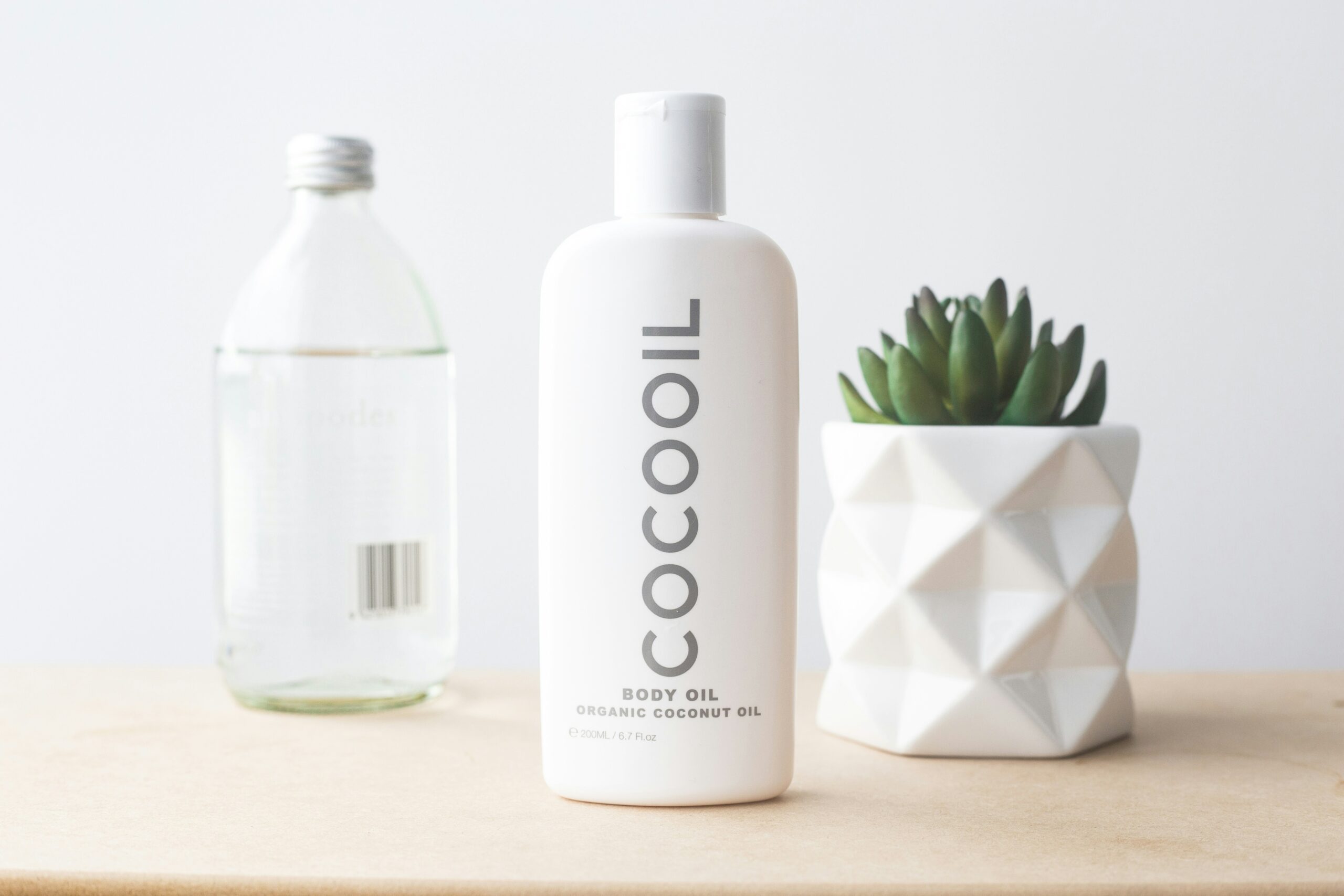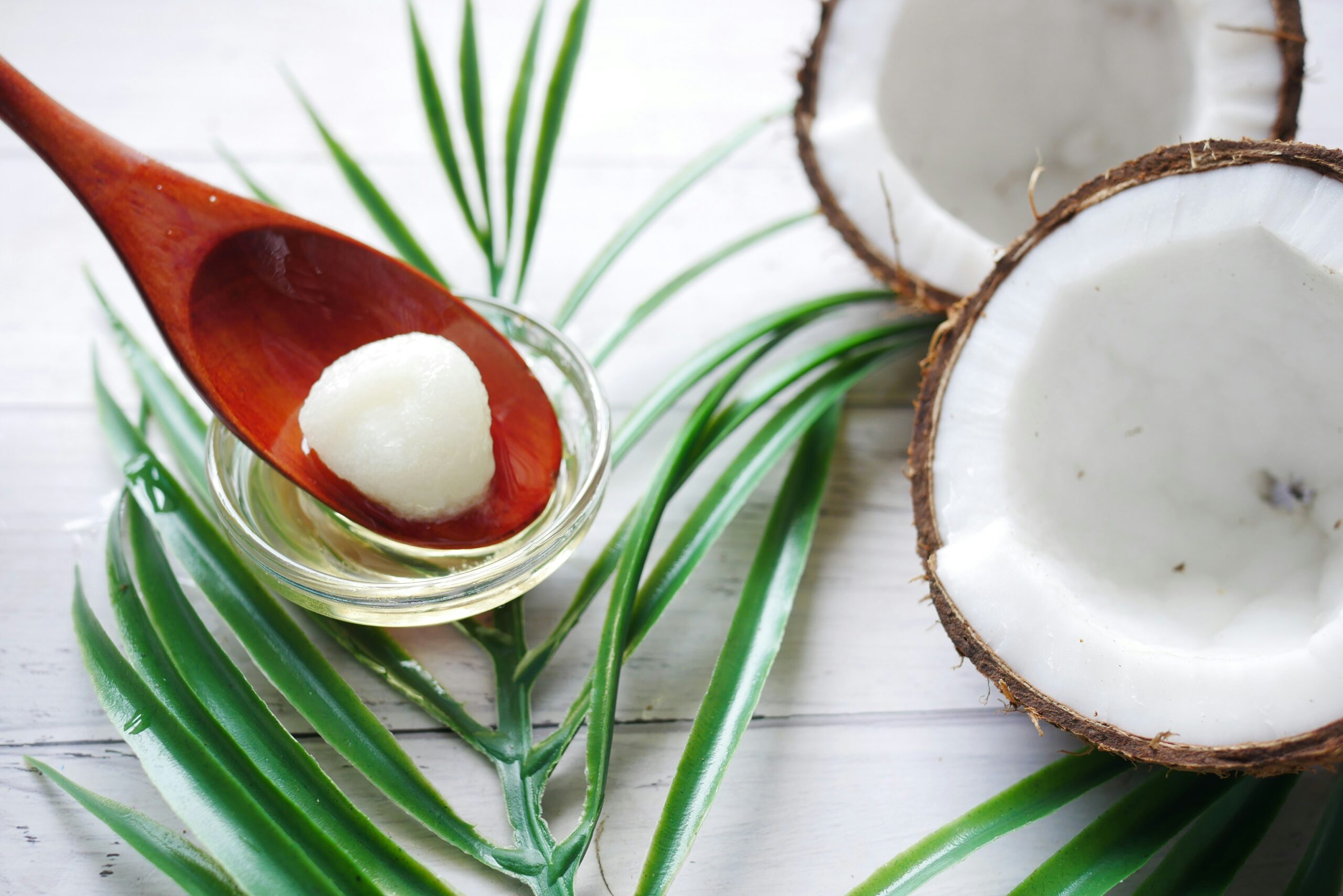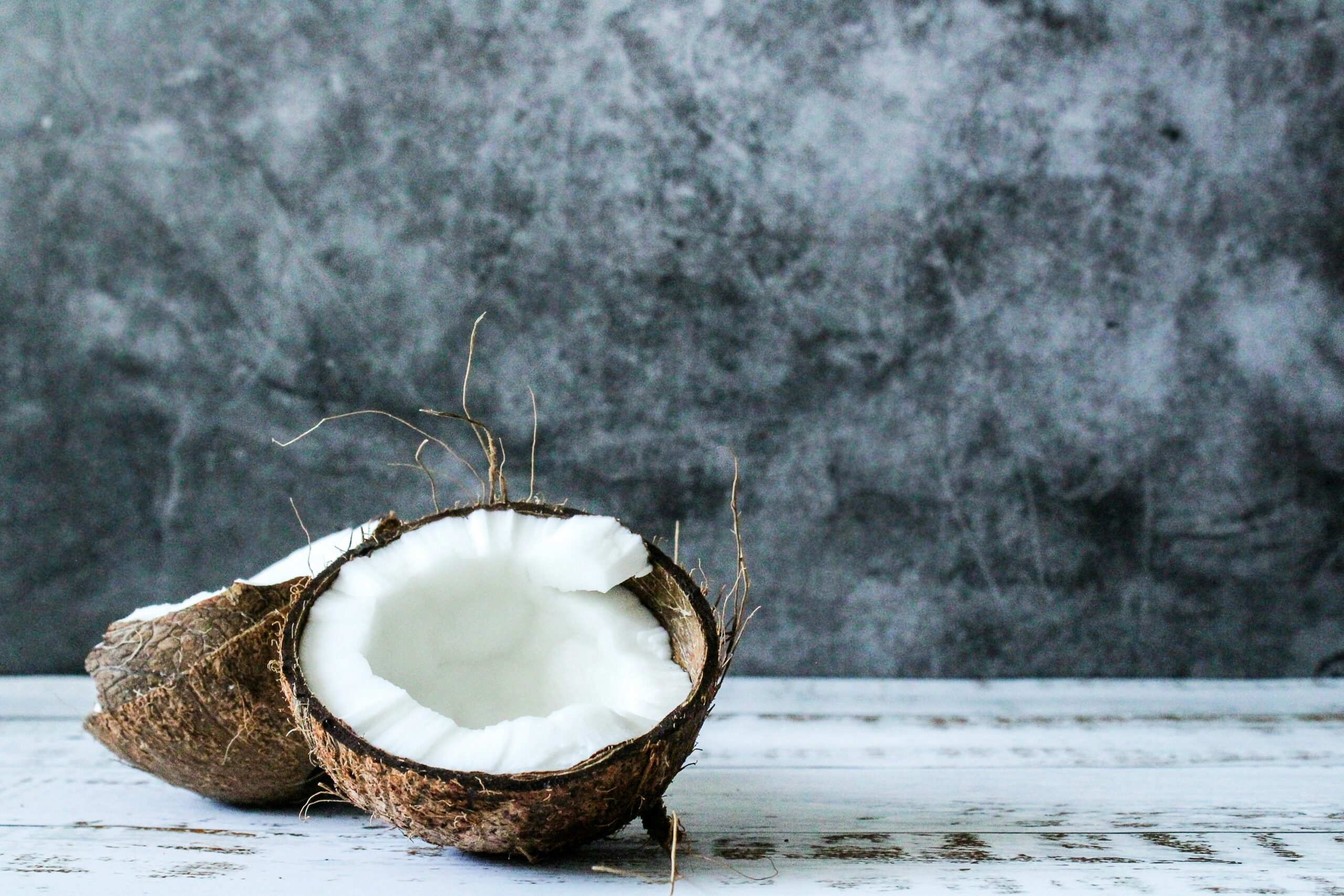Coconut oil is taken from the kernel or meat of coconuts. Coconut flesh is abundant in many important components. In addition, it has an exceptional taste and many people love it. The oil from the nut has a more subtle smell and flavor, though it has an aftertaste of coconut. This type of oil forms a white solid mass at medium temperatures. It becomes defined and fragrant during heating. Some South Asian Nations have coconut oil as an important meal ingredient.
Coconut oil was initially lumped with all saturated fatty acid-rich foods and attacked for its negative health consequences. Yet, studies show that coconut oils can be good for humans. This opens up new avenues of its usage in most domains. In addition to its use in cooking, the oil of coconut meat has attracted attention and emerged as a product of choice for cosmetics and pharmaceuticals.

Different stages are involved in the process of coconut oil. We can eat this oil as a virgin or a refined. Refining is simply removing what shouldn't be there and preserving what should. But, under such harsh conditions as the refiner process is by definition, there is no way for all replacement components not to be removed and some undesirable ones not to be created. That is the reason why most people like using unrefined coconut oil. Naturally, it depends on the purpose that the patient expects to achieve with the oil to choose an appropriate one.
This type of oil also raises controversy over its health benefits. Read more about coconut oil, discover its health properties, and learn how to use it safely.
Coconut oil is a very unique type of oil. It is derived from the matured fruit kernel or coconut meat harvested from a coconut palm, Cocos nucifera![]() . Coconut oil has been a staple fat for billions of people for generations. The oil was domesticated for food, fuel, and soap once imported into Europe. Coconut oil was also cheaper and cleaner than animal fats. Modern people use its oil and related products for cooking and food preparation. Also, it has a lot of other uses. It has several applications, including the production of medicines and cosmetics. Find out the most dominant health benefits of coconut oil.
. Coconut oil has been a staple fat for billions of people for generations. The oil was domesticated for food, fuel, and soap once imported into Europe. Coconut oil was also cheaper and cleaner than animal fats. Modern people use its oil and related products for cooking and food preparation. Also, it has a lot of other uses. It has several applications, including the production of medicines and cosmetics. Find out the most dominant health benefits of coconut oil.
Some think coconut oil assists in weight control. Composed of more water-soluble lipids, they can be easily hydrolyzed by lipase absorbed through the intestine and delivered directly to the liver for immediate metabolism and energy without being stored as fat in adipose tissue. This is why it is said to lower your baseline metabolic rate. Even the satiety was higher than with this oil type. Oil has drawn attention recently as a method of weight loss — an area still debated in its efficacy.
Studies have shown that some subjects experience weight gain as a side effect of supplementary coconut oil. So, the data is uncertain, though food practices are likely also a significant contribution. Weight gain will not threaten you if you are on a healthy diet and using coconut oil in moderation.

The biggest concern about coconut oil is its high saturated fat. It is generally believed that saturated fats can lead to an insulin-resistant state in humans, which then proceeds to the development of metabolic diseases like diabetes. However, after some looking into it, it can be seen that this kind of oil can exert an anti-diabetes effect by stabilizing blood sugar levels. According to the researchers, part of the effect may be due to phenolic acids in the oil regulating sugar. In addition, the oil may protect against secondary effects of diabetes, including diabetic nephropathy![]() , through this mechanism.
, through this mechanism.
A good diet can prevent you from many diseases, including the deadly ones. Hence, coconut oil with anticancer activity could be useful. Certain studies reported that this class of oil can display action toward colon, liver, and lung cancer. According to the experts, dietary coconut oil is beneficial in decreasing both ulcerative colitis and colon cancer risk. The cause is that maintenance of intestinal barrier integrity is not mediated by the oil. Not only does coconut oil have anticancer properties, but it can also help offset side effects caused by chemotherapy![]() .
.
Free radicals are bad for the health of human beings because they cause oxidative stress. Antioxidants can slow down or prevent oxidation and absorb free radicals. Coconut oil has undergone several studies to analyze its antioxidant properties. It has gained interest as an oil that possesses high antioxidant activity. Having a natural phenolic content provides an antioxidative effect to help protect the body against stress caused by oxidative species.

Besides antioxidant activity, coconut oil has been shown to have anti-inflammatory properties. So, this oil gives inflammatory protection. Inflammation is an important component of many processes in the immune system. Research suggests coconut oil increases antioxidant enzymes and decreases inflammatory gene expression. A separate study found similar conclusions, stating that while this oil can treat acute inflammation![]() , it has a less potent effect against chronic inflammation.
, it has a less potent effect against chronic inflammation.
One more paper we will reference demonstrates the activity of coconut oil against different types of pathogens. According to specialists, the oil appears active against Gram-positive bacteria and others. Scientists discovered that the oil can combat Escherichia coli![]() , or E. coli bacteria (which cause various inflammatory disorders).
, or E. coli bacteria (which cause various inflammatory disorders).
Coconut palm oil has also been shown to inhibit certain viruses. It can elicit functionality against lipid-coated microorganisms such as flu virus and hep C and thus be considered an efficient product. Numerous reports have implicated lauric acid as a component in coconut oil that is responsible for its antimicrobial activity. The oil can also be used as an antifungal against some species of fungi, including the prevalent Candida albicans![]() .
.
In some cases, factors can damage the liver, a vital organ. Drug and chemical intake via food is believed to harm the liver, making it susceptible to organ damage and dysfunction. Non-alcoholic steatohepatitis is a major clinical problem on a global scale. This led to a rise in the quest for alternative dietary methods of disease prevention. As documented by several studies, coconut oil decreases paracetamol-induced toxicity![]() on liver function markers and morphology.
on liver function markers and morphology.
In addition, coconut oil (cold pressed) can also be effective in damage caused by some antibiotics. Coconut oil appears to be a good candidate for hepatoprotective effects, at least according to studies so far. Part of this effect is due to its action as an antioxidant.
Coconut oil is also a cosmetic raw material. At times, it serves as a component in face creams, shampoos, etc. The moisturizing characteristic of the oil is likewise associated with its useful outcomes on exterior body components like hair and skin. Due to the low molecular weight, the oil has a strong affinity for hair proteins and easily penetrates the shaft. It also showed that coconut oil offers hair more protection against heat exhaustion damage. Besides this, Ayurvedic medicine views coconut oil as a treatment for many skin diseases, including wound healing and microbial infections.

The world market has noted the use of coconut oil because of its high saturation level and good stability. While definitely heat stable, this works well only for aesthetics or frying. Its smoke point is very high. With its very high degree of saturation, it oxidizes slowly and is thus rancid-resistant. For this reason, it is a multi-benefit product. Besides, it is also rich in many essential nutrients. You can, however, change the values based on oil types. Discover the ingredients in Coconut Palm Oil. You need to know how the composition of oil relates to the real therapeutic benefits it exerts.
Well, as the name describes, oil is nothing but fat. Medium-chain fatty acids are a special type of fat molecule that is most abundant in coconut oil. Coconut oil is the one dietary fat that's not all long-chain fatty acids. Saturated fatty acids comprise around 92.1%![]() , monounsaturated fatty acids are about 6.2%
, monounsaturated fatty acids are about 6.2%![]() , and polyunsaturated fatty acids are only about 1.6%
, and polyunsaturated fatty acids are only about 1.6%![]() . This is the reason it has a somewhat higher melting point. At temperatures above 24°C, coconut oil possesses the physical state of a colorless liquid. At lower temperatures, it freezes as a pure white solid.
. This is the reason it has a somewhat higher melting point. At temperatures above 24°C, coconut oil possesses the physical state of a colorless liquid. At lower temperatures, it freezes as a pure white solid.
The most probable question is whether coconut oil can help you fill vitamins in your diet. Coconut oil isn't exactly bursting at the seams with vitamins, but again, that's not to say it lacks them altogether. Vitamin Game is where this product packs a lot of attention easily. Vitamin E is a natural element that occurs in most vegetable oils as tocopherols![]() . On the other hand, it is also important to note that coconut oil has a low tocopherol value compared to other vegetable oils. The product may contain vitamin C and other polyphenols.
. On the other hand, it is also important to note that coconut oil has a low tocopherol value compared to other vegetable oils. The product may contain vitamin C and other polyphenols.

Another product derived from coconut palm nut is coconut water, which is a source of mineral elements and allows you to regulate metabolism in deficient individuals. However, coconut oil has fewer minerals than coconut water. For instance, coconut oil contains magnesium, iron, and calcium.
Phenolic compounds are primarily bioactive elements that account for the health-promoting properties of food. Phenols are the major group of phytochemicals recognized for their antioxidant activity. Various vegetable oils are reported as good sources of free radical scavenging phenols. Coconut oil is rich in several phenolic compounds (ferulic acid![]() , catechin
, catechin![]() , etc.) that have been shown to exhibit antioxidant activity. Coconut mature flesh also houses sterols, which are excellent natural compounds that might provide protective effects from different diseases. However, coconut oil was lower in sterols than olive oil.
, etc.) that have been shown to exhibit antioxidant activity. Coconut mature flesh also houses sterols, which are excellent natural compounds that might provide protective effects from different diseases. However, coconut oil was lower in sterols than olive oil.
Coconut oil is what we would call a miracle product, with endless uses in many aspects of life (especially the kitchen!). It is excellent for cooking and frying. Those starting with coconut oil in their food should begin by taking it in a lesser quantity. Also, check with your doctor first to see if it's even a possibility to use this type of oil.
Coconut meat oil is a versatile oil with various advantages. At the same time, it comes with a few controversies on the health front. When is it worthwhile to incorporate into the diet, and when is it better to seek other alternatives? Whether coconut oil is good for or bad for our bodies is not at all that clear-cut.
Coconut oil is healthy, but you still need to use it reasonably. Only optimal and small amounts of it in the diet are needed to enjoy its benefits on the body. While this is part of the general information about coconut oil that we can know, it would be good to know the effects of using coconut oil functionally so that health will not be damaged.

The consumption of coconut oil raises several issues. A few relate to the product's impact on the risk of cardiovascular disease. This led scientists to conduct several studies on the topic — does coconut oil help or harm the heart? But that can be misleading. Other human nutrition studies have shown the beneficial lipid effects of coconut fats. Multiple studies conclude that coconut fat elevates blood levels of so-called good cholesterol, with little or no impact on the remaining cholesterol classes. Thus, coconut oil supplementation positively affects the lipid profile, which benefits the cardiovascular system.
Yet other studies have reached conflicting results. Coconut oil raises total LDL and HDL cholesterol more than vegetable oils. What do you think about it then? Experts say that excessive intake of junk fats in the diet is probably not an excellent idea. Hence, moderate incorporation of coconut oil in the day-to-day diet is suggested. Moreover, others point out that for decades, some countries have used massive amounts of coconut oil, and the statistics show a low rate of cardiovascular diseases among these citizens. As such, the excess may rise to the level of concern.
Recurrent side effects were heard in a study to which they had been given coconut oil. A few of the patients said that they had got a scratchy throat, which had that sick feeling, as in a cold. Diarrhea was reported in other patients. A few also mentioned that they started to gain weight since supplementation. A more severe adverse effect identified subjectively was gastroenteritis. Still, the side effects were uncommon and might have been related to the patient's clinical status.